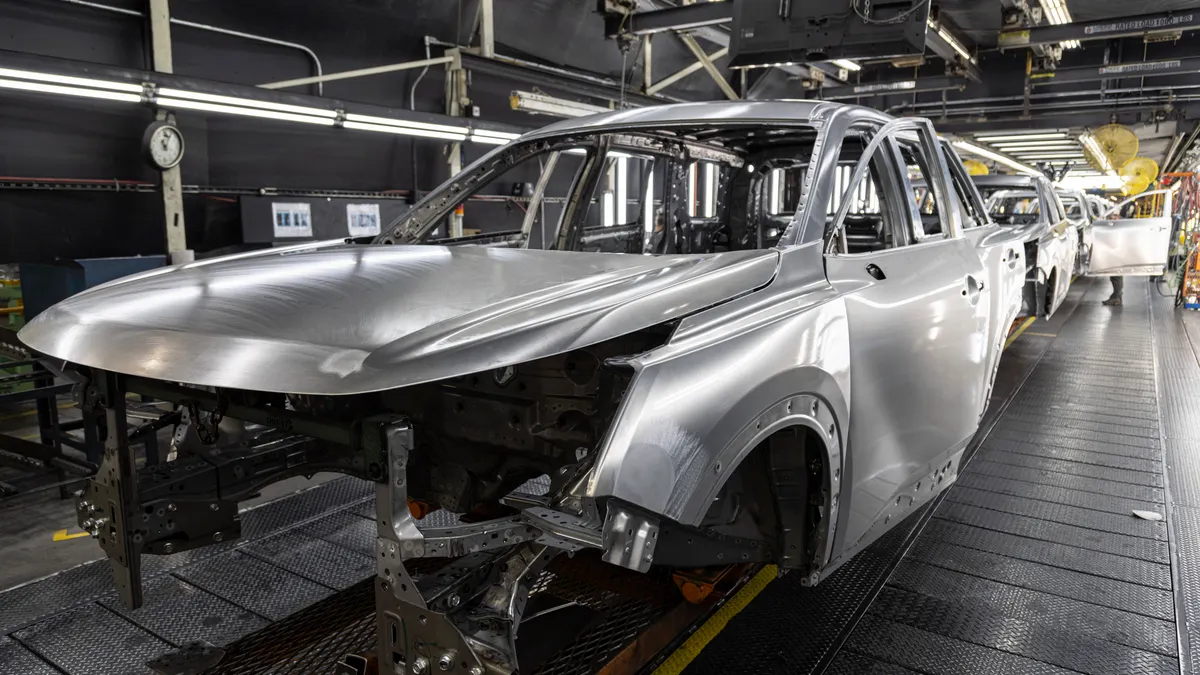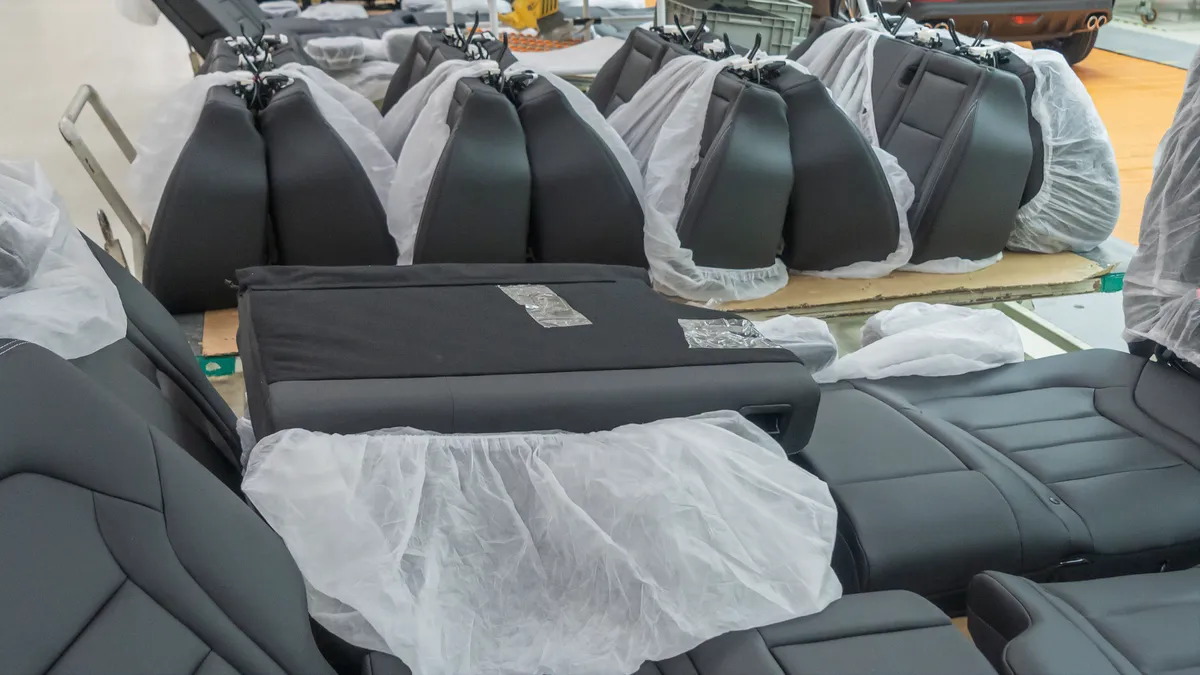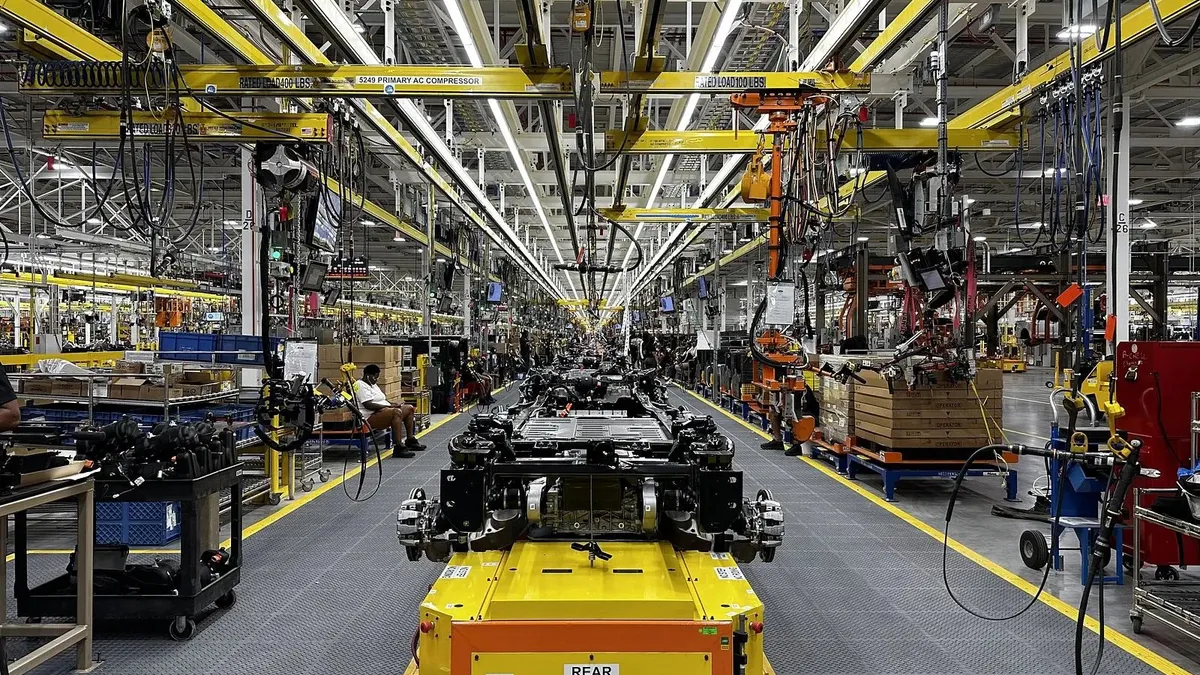Nissan Motor Co. plans to cut a total of 20,000 jobs from its global workforce and shutter seven plants in an effort to rapidly slash expenses amid an uncertain global economic environment, the company announced Tuesday.
The latest 11,000 workforce force reductions, outlined in the company’s Re:Nissan recovery plan, are in addition to the 9,000 previously announced cuts in November.
The automaker said the workforce reduction, which will be completed by FY2027, will cover a variety of jobs including direct and indirect roles and contractual positions in manufacturing, administrative, sales and R&D.
The automaker did not specify which plants would close, but the plans indicate it will “consolidate its vehicle production plants from 17 to 10 by fiscal year 2027.”
Nissan also plans to streamline its powertrain plants by accelerating job reformation and work shift adjustments and reducing capital expenditures, which includes canceling a planned lithium iron phosphate battery plant in Kyushu, Japan.
The plan aims to generate 500 billion yen ($3.4 billion) in savings with a goal of returning Nissan to profitability by FY2026.
When asked by analysts Tuesday whether the automaker’s latest cost-savings plan would be enough to help the company, President and CEO Ivan Espinosa said the automaker’s focus now is executing its plan rather than considering more scenarios.
“What Nissan needs to do now is to focus on doing and this is what we will do,” he said.
Nissan also seeks to reduce expenses another 250 billion yen ($1.7 billion) and has allocated a team of about 300 internal experts “empowered to make cost decisions,” per the release. An additional 3,000 workers also will be diverted from post-FY26 product activities to focus on cost reduction initiatives. The goal ultimately is to reduce Nissan’s fixed costs by 250 billion yen by FY26.
Nissan has been plagued with declining profits in a cooling marketplace and cutting expenses is a priority for the automaker. The company’s full-year operating profits nosedived nearly 500% to 69.8 billion yen ($472M) down from 568.7 billion yen ($3.8 billion) a year earlier. Nissan’s operating margin was 0.6%, down from 4.5% a year ago.
As Nissan works to boost profitability, the company along with its competitors have also been retooling global production to meet rising demands for electric vehicles, while still building gas-powered cars and trucks. Along with these actions, automakers have also pivoted to boost U.S. production as a strategy to mitigate tariffs implemented by the Trump administration.
Other missteps by Nissan included a failed merger with rival Honda Motor Corp., which led to the ousting of several top executives and appointment of new leaders to guide the company’s turnaround.














